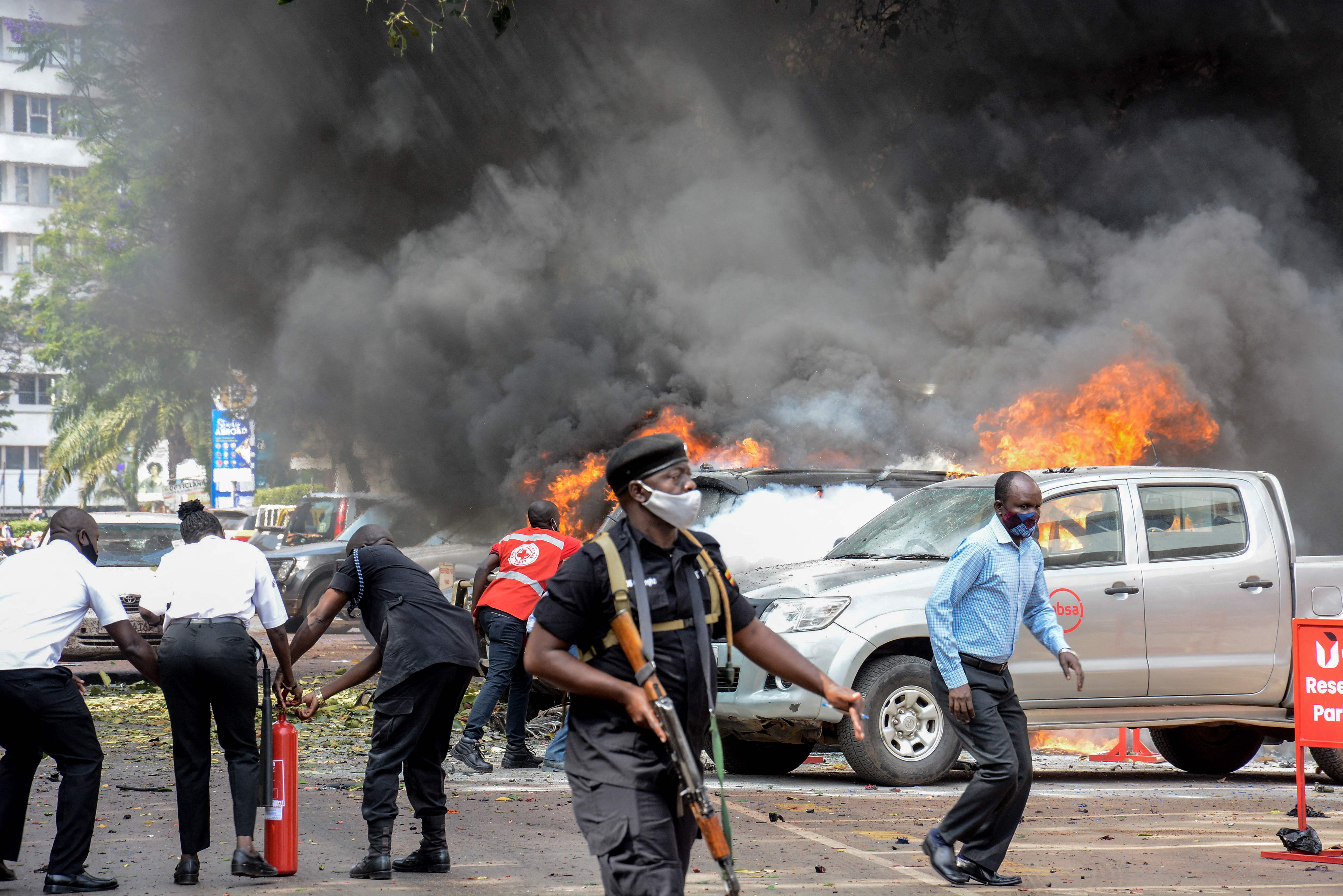At least three killed in two explosions in Ugandan capital Kampala
Two loud explosions rocked Uganda’s capital, Kampala, early Tuesday, sparking chaos and confusion as people fled what is widely believed to be coordinated attacks

Your support helps us to tell the story
From reproductive rights to climate change to Big Tech, The Independent is on the ground when the story is developing. Whether it's investigating the financials of Elon Musk's pro-Trump PAC or producing our latest documentary, 'The A Word', which shines a light on the American women fighting for reproductive rights, we know how important it is to parse out the facts from the messaging.
At such a critical moment in US history, we need reporters on the ground. Your donation allows us to keep sending journalists to speak to both sides of the story.
The Independent is trusted by Americans across the entire political spectrum. And unlike many other quality news outlets, we choose not to lock Americans out of our reporting and analysis with paywalls. We believe quality journalism should be available to everyone, paid for by those who can afford it.
Your support makes all the difference.Two loud explosions rocked Uganda's capital, Kampala, early Tuesday, sparking chaos and confusion as people fled what is widely believed to be coordinated attacks.
One blast was near a police station and another on a street near the parliamentary building, said witnesses. The explosion near parliament appeared to hit a building housing an insurance company and the subsequent fire engulfed cars parked outside. Some lawmakers were seen evacuating the precincts of the parliamentary building nearby, according to national broadcaster UBC
At least 24 people have been hospitalized with injuries sustained in the blasts, Emmanuel Ainebyoona, a spokesman for the Ministry of Health, said in a Twitter post. Four of them are critically injured, he said.
An eyewitness video posted online showed a plume of white smoke rising from the blast scene near the police station.
Police did not immediately comment, and it was not clear if the explosions were bomb attacks.
People are scampering to leave the city, many on passenger motorcycles.
Ugandan officials have been urging vigilance in the wake of a string of bomb explosions in recent weeks.
One person was killed and at least seven others wounded in an explosion at a restaurant in a suburb of Kampala on Oct. 23.
Another explosion two days later on a passenger bus killed only the suicide bomber, according to police.
Even before those attacks, the U.K. government had updated its Uganda travel advisory to say extremists “are very likely to try to carry out attacks” in this East African country.
The Allied Democratic Forces an affiliate of the Islamic State group in central Africa, claimed responsibility for the attack on the eatery.
That group has long been opposed to the rule of longtime President Yoweri Museveni a U.S. security ally who was the first African leader to deploy peacekeepers in Somalia to protect the federal government from the extremist group al-Shabab. In retaliation over Uganda's deployment of troops to Somalia, the group carried out attacks in 2010 that killed at least 70 people who had assembled in public places in Kampala to watch a World Cup soccer game.
But the Allied Democratic Forces, with its local roots, has proved more of a headache to Museveni.
The group was established in the early 1990s by Ugandan Muslims who said they had been sidelined by Museveni's policies. At the time, the rebel group staged deadly terrorist attacks in Ugandan villages as well as in the capital, including a 1998 attack in which 80 students were massacred in a frontier town near the Congo border.
A Ugandan military assault later forced the rebels into eastern Congo, where many rebel groups are able to roam free because the central government has limited control there.
Reports of an alliance between the Allied Democratic Forces and the Islamic State Group first emerged in 2019, according to the SITE Intelligence Group, which tracks the online activities of extremist organizations.